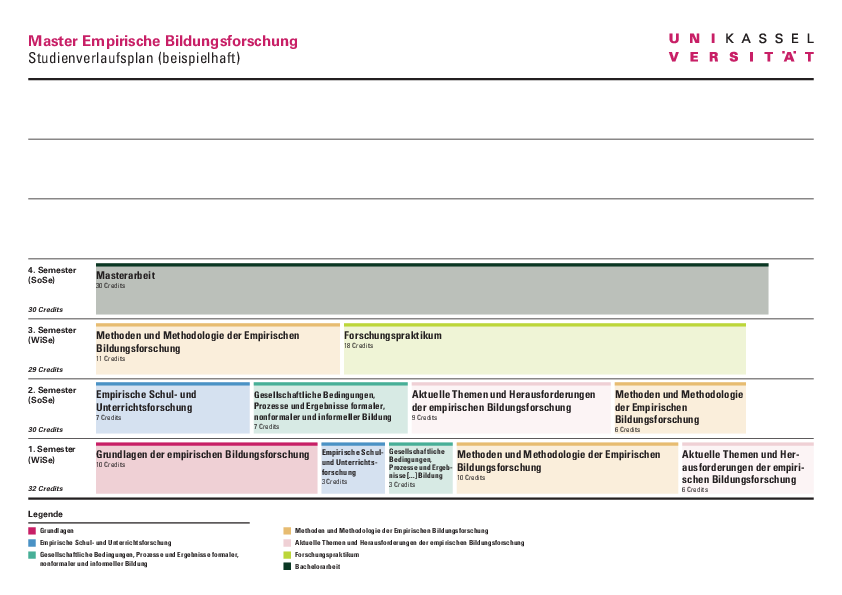A degree program consists of modules that are defined in the examination regulations and described in more detail in the module handbook. In terms of content and time, it makes sense to study these modules in a certain order. For each degree program, there is a sample study plan that shows you an ideal typical course. If you study in this way, you will be able to complete your studies in the standard period of study. This is not always possible, so there may be individual deviations from the suggested sequence. When planning, you should bear in mind that not every module is offered in the winter and summer semesters and that some modules necessarily build on each other or have other participation requirements. The student advisor will support you in the individual organization of your studies.
